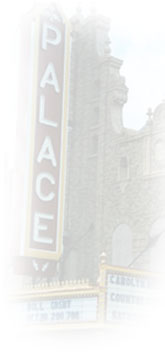By John Van Druten
Directed by Michael Wilson
Starring Margaret Colin and Harriet Harris, with Stephen Bogardus, Diane Davis, Corey Stoll, Cynthia Darlow, Gordana Rashovich
You may not know exactly who the actress Harriet Harris is, but I’m willing to bet that she has made you smile—or gasp in horror. Possibly both. I’ve been bewitched by her since, in an early episode of “Six Feet Under,” she forced Nate Fisher to lift the coffin lid hiding the mangled body of her late, abusive husband, then laughed hysterically as she realized he could never hurt her again. My jaw hung open again when she cheerfully let her amnesiac husband kill her with multiple insulin shots in order to prove a point in the film Memento. After that, her turn on “Desperate Housewives,” as a gleefully vengeful sister who cuts off her own finger to help fake her own death, was just icing on the cake. Oh, and she’s a musical comedy diva as well; she nabbed a Tony as Thoroughly Modern Millie’s villainess and nearly upstaged Christine Baranski as Vera Charles in the Kennedy Center’s production of Mame.
Harris touches greatness again in Old Acquaintance, the Roundabout Theatre Company revival of the 1940 John Van Druten comedy of manners. Today the play is probably better known by its 1943 film version of the same name, with Bette Davis and Miriam Hopkins as lifelong friends, both writers, who compete over men, the affections of Miriam’s daughter, and most of all each other’s regard.
Harris stands out in this revival not just because she’s great but because the production around her only occasionally rises to her level. The biggest imbalance is with Harris’ co-star Margaret Colin, who plays Katherine Markham, a serious writer whose books make her a New York literary world celebrity even if—or more likely because—they rarely crack the best-seller lists.
In contrast, Harris plays Mildred Watson Drake, whose books will never win a Pulitzer but which sell 10 times as many copies as Katherine’s. She pens trashy, wish-fulfillment beach reads about rich, pretty, glamorous people facing Big Problems that are nevertheless tidily resolved by liberal applications of True Love. The modern equivalent would be Jackie Collins or Sidney Sheldon, without the explicit sex (this is 1940, after all).
Despite reaping beaucoup bucks from this sure-fire formula, Millie is insanely jealous of Kit—emphasis on the insanely. It has always been thus: Harris has a doozy of a first-act speech that she turns into a whirling, breathless aria of long-standing envy dating back to the women’s childhoods. Millie had a nicer house, more money, lots of beaux, but she still felt deprived because Kit was more fascinating, had more fun, and had men interested in her, not silly boys. The rivalry of these two best frenemies continues to this day: the action of the play is essentially a tug-of-war between the women over Millie’s 19-year-old daughter Deirdre (a charming Diane Davis). Deirdre knows her mom’s books are trash, and she regards Kit with admiration bordering on hero (heroine?) worship.
The problem with this production is that Colin’s Kit is none of the things described. She looks like she’s read some good books but it’s a stretch to believe she’s written any. She’s certainly attractive, and she has a rueful, worldly-wise appreciation of the absurdities of friendship, love, and the literary scene. But Colin hasn’t connected with the magnetic life force that someone like Kit should give off, the unmistakable aura of not just an active mind but a passionate soul.
It didn’t help that at the performance I attended she seemed a bit uncertain of her lines, but Colin’s Kit was tentative where she should have been dynamic. This especially hurt her scenes with Rudd Kendall (Corey Stoll), the attractive man 10 years her junior who proposes marriage in the first act. You might buy that he’s in love with her (or at least infatuated with her celebrity), but her general disconnection from the character makes it seem that there’s little at stake whether the two marry or not.
Colin has done good work elsewhere, and Kit would seem to be well within her range. Perhaps faced with a co-star like Harris, for whom More is More and Too Much is Never Enough, Colin decided to underplay her role. Perhaps she was having an off night; perhaps director Michael Wilson hasn’t helped her find Kit’s essence. Whatever the reason, Old Acquaintance will be out of balance until and unless she steps up.
It’s too bad, because the play itself has its interesting points, about the persistence of, and need for, female friendship, despite the distractions of men, motherhood and career. While no one would call this a feminist play, it was kind of modern to have both lead characters be successful career women in 1940. Van Druten also had a keen ear for the comic absurdities of book publishing, New York and Hollywood that are dated but not out of date. He was a skillful play constructor, so even if this production is not totally satisfying it’s rarely dull.
But Harris is the real reason to see Old Acquaintance. Besides all her other gifts, including her comic timing and her willingness to display the least attractive (and therefore funniest) aspects of her character, she’s a riotous physical comedienne. Don’t ask me how, but in the second act, a bit tipsy and stung by betrayal, she manages to fall up a flight of very steep stairs. Join her fan club for real—you’re already a member, you just don’t know it.
(This review originally appeared on www.blogcritics.org) |


